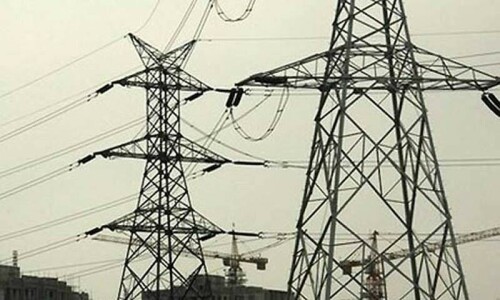PESHAWAR: More than 16,000 out-of-school children, who were selected for getting education in private schools at the government’s expense, couldn’t be enrolled for various reasons, according to sources.
They said that provincial government allocated Rs500 million for supporting out-of-school children to get education in private schools under Iqra Faroghe Taleem Voucher Scheme.
The Elementary Education Foundation, which executes the scheme in the province, selected 30,000 out-of-school children during a door-to-door survey for enrolling them in private schools with the full support of the government. The voucher scheme was applicable to those children, whose parents couldn’t afford expenses of their education in private schools.
Sources said that the voucher scheme was applicable to the children of selected areas where state-run primary or middle school didn’t exist within one or one-and-a-half kilometre radius.
Last year, sources said, EEF selected 30,000 out-of-school children through a firm in six districts including Peshawar, Dera Ismail Khan, Kohat, Mansehra, Mardan and Swat. Of them, it could only enrolled 14,000 children, they said.
Official cites lack of awareness among parents about importance of education as the main reason
Earlier, sources said, the education department convinced the parents to enrol their children in private schools at government’s expenses during the selection drive. However, when the enrolment process of out-of-school children started, more than half of the selected students couldn’t be enrolled obviously for four major reasons, they said.
Lack of awareness about importance of education among the parents and earning money as child labour by most of the out-of-school children was one of the main reasons for not enrolling the children in the schools, a senior officer in the education department told Dawn.
He said that enrolment drive under the voucher scheme and awareness campaign should be run parallel in the selected areas for maximum enrolment of out-of-school children.
The officer said that some parents told the officials of education department that many master degree holders were roaming jobless so what their children would do if got education. “Instead of going to schools it is better to learn some skills at workshops and earn some money,” the officials said while quoting the parents.
Migration from one place to another of the selected children was another reason, an official in education department told Dawn. In some cases a child was selected during the survey but at the time of enrolment his family shifted to other areas, he said.
The third reason was that the parents sometime also demanded other incentives like edible items for enrolling their children, he said, adding that some of the UN agencies were giving edible oil in a few far-off districts for promotion of education. The parents of the out-of-school children were very poor so they demanded financial help, he added.
The official said that fourth reason was that many parents didn’t allow their daughters to go to a school which was one kilometre away from their residence.
He said that the government’s initiative to enrol out-of-school children couldn’t be succeeded fully without making proper legislation to suggest punishment for the parents, who were not sending their children to schools.
The official said refusal cases of oral polio vaccine in many areas of the province were reduced to a large extent when the district administration in the respective areas forced the parents for it. If punitive action was also taken against the parents for not enrolling their children, the number of out of school children would also reduce with the passing of time, he added.
Under the voucher scheme, the provincial government has been paying Rs500 as tuition fee to the students, enrolled in the private primary schools through vouchers. Similarly, the tuition fee for up to the middle class is Rs600.
The fee of the students enrolled in high and high secondary classes is Rs800.
Minister for Elementary and Secondary Education Mohammad Atif Khan was not available for comments despite several attempts by this scribe to contact him through his cellular phone.
Published in Dawn, January 11th, 2016













































